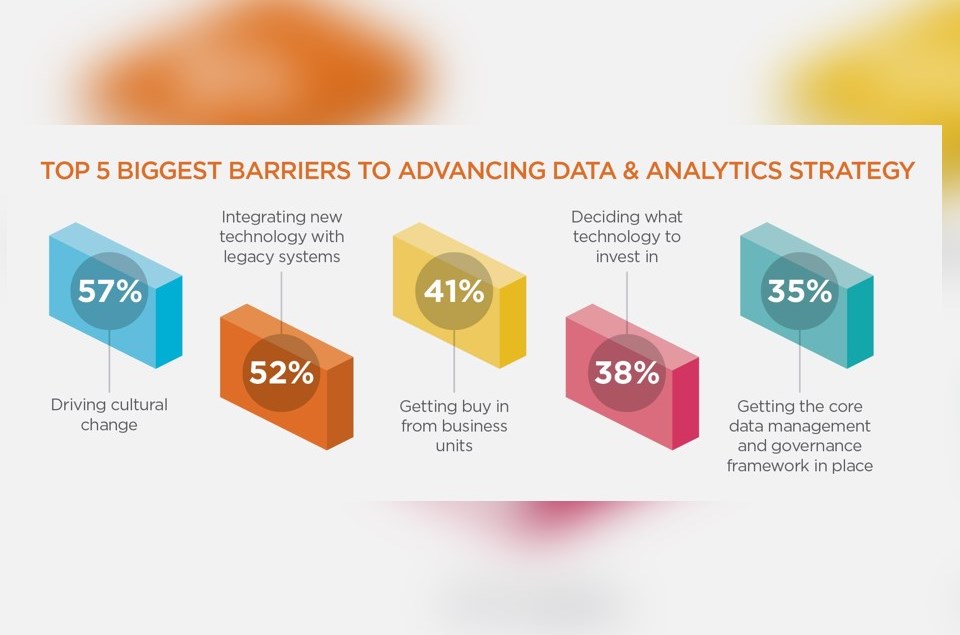We recently had an opportunity to interview Cetin Karakus, Global Head of Analytics Core Strategies, IST IT&S at BP ahead of the upcoming Chief Analytics Officer, Spring happening on May 2-4, 2017 in Scottsdale, Arizona. In this thought-provoking interview, we discussed the evolution of the Chief Analytics Officer, extracting deep insights from unutilized data and the next area of investment in analytics within the energy business.
Corinium: Do you see your role changing/evolving in the next 5 years? If so, how?
Cetin Karakus: The answer is a definitive yes. There are so many vectors of change that affect the work I do, it would be pretty much impossible not to get impacted from them in one way or another. To start with, the business is operating in an environment of relentless change and evolution, recent low oil prices and the Shale Revolution that partly accounts for that development is just one of those changes. You could throw in developments such as a shift towards more environmentally friendly natural gas (from oil and coal) in energy mix of major consumer markets, increasing preference for short-term, variable (as opposed to fixed) pricing contracts among energy consumers and the major implication of that as manifested in shift from supply-based arrangements to market-oriented, trading-based ones, and so on.
And then, you have the technology of analytics world, for whom the best analogy I could come up with so far is techno-zoo: a place of various beasts of different shape, size and behaviour that all look different from each other on the surface (and try hard to look different even when they are, in fact, not that different) but they nevertheless could be placed into a taxonomy of some sort for the benefit of managing and utilizing them appropriately (not to forget mentioning the need to keep your sanity when dealing with them) with enough fortitude on the taxonomer’s part. The zoo has been evolving even faster than the business world it is supposed to serve. New exotic beasts being enlisted in the growing chorus of the zoo almost on a monthly, if not weekly, basis. New arrivals change the dynamics of interactions and potential choreography of shows you could put on using the inmates of the zoo, hence requiring keeping a constant eye on this emerging and somehow chaotic field.
Even when we assume a relatively saner operating environment of business world being relatively calm and stable, and that we have a mature portfolio of technological tools and systems at our disposal, we still have to deal with the sheer combinatorial dimensions that are the result of the mix-and-match between opportunities for transformative business capabilities and technological choices that could fulfill those capabilities. There is a fair bit of experimentation that has to take place to reach optimum combinations and that itself will be a potent-enough driver for any change in the nature of my role over the next several years.
Corinium: What are the main objectives for data/analytics within your organisation?
Cetin Karakus: Both data and the analytics that can be performed on that data for useful business ends are like icebergs: There is a 5-10% very visible part which is a low-hanging fruit and is subject of the short term planning and delivery horizons. However, there is a much bigger piece which we know exists and could have material impact on the business if and when we can utilize it properly. So our objectives are twofold: first, deliver immediate value via picking up those low hanging juicy fruits but at the same time not to get complacent and plan for the bigger prize by investing in our tools, infrastructure and systems for extracting deep insights from the much bigger, unutilized data.
Corinium: What is the biggest challenge you face within your role today and how are you looking to tackle it?
Cetin Karakus: The biggest challenge is the unusually high number of touch points of the systems and applications we build, both from the point of view of people and teams we depend on and the teams and business functions that depend on our deliveries. This is due to the basic nature of the data analytics: there is literally no part of the business that does not either produce and/or consume one form or another of data that cannot be used in the data analytics platform we are building. Sheer multiplicity of actors and stakeholders involved makes what is already a challenging task of building a technically highly sophisticated system extra hard.
The way to go about tackling this challenge can be summarized as: start small, deliver value and build credibility and scale out to repeat your success in new areas and/or wider theatre of operations. Let me elaborate on this a bit:
- Building Credibility: This is very important as it will completely characterize the nature of the relationship you have with your main stakeholders going forward and could have a make-or-break kind of grave consequences if not handled properly. That is why it is very important to have a bootstrap mindset where you pick a well-understood (not necessarily well-defined though) area/problem and attack it first. This not only rewards you with quick successes that brings appreciation and admiration from your customers but more crucially, allows you to build your knowledge and the set of patterns, practices and tools that will be instrumental in your future engagements that are bound to be more taxing in terms of both the overall delivery efforts required and technical and business challenges faced.
- Scaling out success: This is easier said than done but could nevertheless be feasible if you could get on a good start not through luck or other unrelated factors but through a pragmatic, delivery-oriented bootstrap mindset that balances technical shortcomings of agile deliveries against more stringent requirements of a mature, well-structured and well thought-out long-term vision. To do that, you need a rare breed of people: not just technically capable and competent and can/will operate as tacticians in short term, but as strategists in long term. Not an easy task by any means. Strong leadership along these lines, I have come to find out, is the key critical success factor.
Corinium: What do you feel is the biggest challenge faced by the analytics/big data industry currently and in what ways does this affect your business?
Cetin Karakus: I consider myself a late comer in this space having worked on derivative pricing and risk systems over the last decade and would have expected to see some sort of consolidation both in terms of ways of thinking about problems but also in tooling and technology. However, everything I observe point in the direction of a field that is just forming up. There are many problems that need to be dealt with and it will take some time before mature solutions emerge and entrench.
Meanwhile, we don’t have the luxury of waiting for those solutions to come along. We have to solve problems as we encounter them, making our task both difficult and interesting at the same time. This will make some the solutions we come up with being necessarily tactical (i.e. solve the problem at hand without much thinking about future, strategic implications). Given the choice, I would like to make as few of those solutions as possible as they are obvious sources of technical debt that will weigh us down along our journey.
Corinium: Where do you see being the biggest area of investment in analytics within your industry over the next 12 months?
Cetin Karakus: Energy business being primarily of a physical nature, it is mainly driven by supply-demand dynamics. Analytical activities play a key role in understanding the forces behind the supply and demand of a particular energy commodity and predicting where those dynamics will take a specific energy market in short-to-medium term. Long-term predictions are very hard to get right and not very reliable anyway. I imagine a lot of investment will go into activities that support and perfect the machinery of predicting short-term supply-demand dynamics.
I see machine learning (ML) technology getting used increasingly more frequently in the day-to-day analytical activities. You can consider ML as a more sophisticated, automated cousin of more basic analytical tools (e.g. regression analysis) that could free up a lot of analysts’ time to focus on more value-added activities that will require their market insights and knowledge. For ML technology to be utilized on a production scale, however, will require a substantial investment in data and compute infrastructure of a firm. So those would be other areas I would expect to see increased investment over coming months and years.
Corinium: If you could have one piece of technology which would revolutionise you and/or your departments activities, what would it be? It could be something that already exists, or not.
Cetin Karakus: I would require two pieces of technology:
- Canonical Data Infrastructure: A data infrastructure providing not only usual technical infrastructure services (inexpensive storage, massive scalability, high availability, etc.) but also proving a sound data classification built into it with canonical data models created for your particular line of business. This cannot be provided by any third-party service provider unless you are operating a very generic business which is hardly the case with any major energy corporation.
- Data Analytics Studio: An interactive environment specifically built for data analytics activities allowing reuse of existing functionality and building complicated analytical transformation flows through lego style building blocks and letting you interactively analyze and debug those flows. There are some tools/applications providing some of the feature set I am after but I have yet to see ones that provide the same level of sophistication electronic design automation tools provide for circuit designers.
Corinium: What is your ultimate goal as a data and analytics leader?
Cetin Karakus: I am a technologist at heart and I like to design and build stuff. As mentioned earlier, there is a lot of confusion in analytics space at the moment and as a technology leader I have to navigate this rather chaotic landscape carefully without losing sight of the main objectives of delivering value to our stakeholders. You learn along the way and it is essential what is learnt is shared and transferred to the next level of leaders in the organization otherwise the organization will repeat the same mistakes in a Groundhog Day fashion. So my goals would be to design and build data analytics systems, keep learning from the experience, share my knowledge with others and learn from them and incorporate the acquired technical wisdom in the next generation of systems I will build. I like to call this spiral of excellence, it will get better and wider as you go along.
Hear Cetin speak at the Chief Analytics Officer, Spring event on May 2-4 in Scottsdale. You can register for the event HERE.









